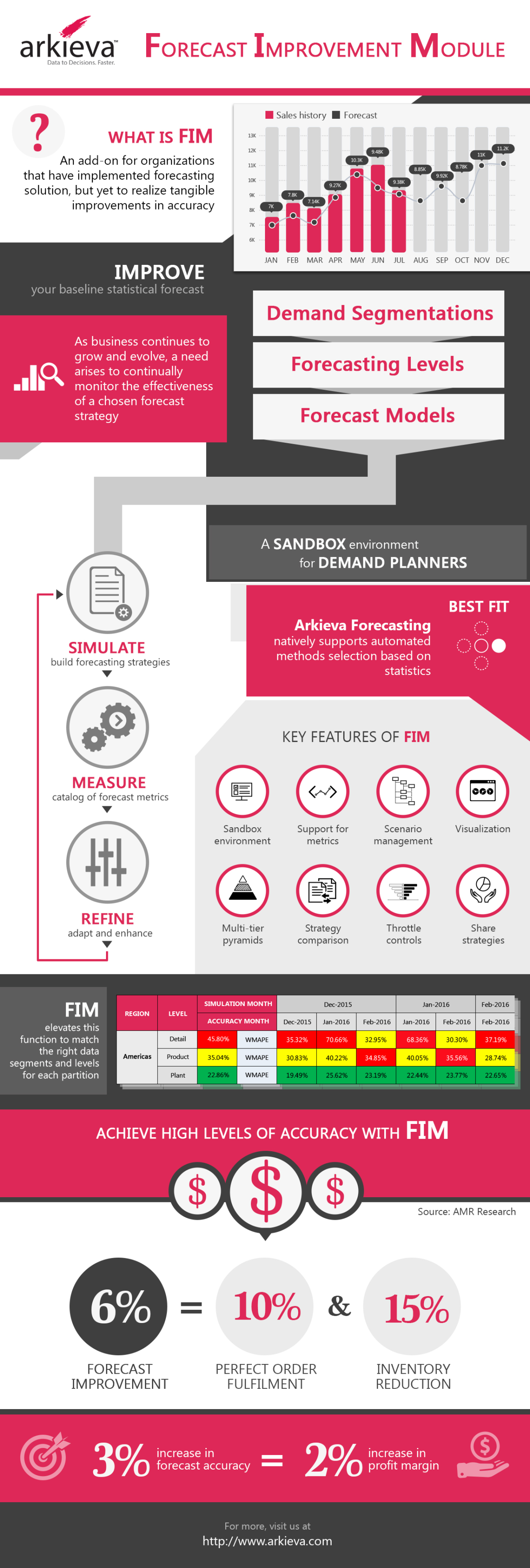
How do you establish a forecast improvement process?
The forecasting process in demand planning sets the stage for all other planning activities including bill of material (BOM) and finished goods inventory optimization. Demand forecasts can also affect perfect order fulfillment rates, customer satisfaction and ultimately bottom line results.
When is it time to Implement a Forecast Improvement Process?
Supply chain optimization should be a continuous and fluid process. Current business processes and strategies should be evaluated frequently to determine areas of improvement. In our post, titled “Three Steps to Better a Better Statistical Forecast,” we explained this process in detail. The three steps are; simulate, measure, and refine.
[Read Also: How to Report Forecast Accuracy to Management]Simulate
The first step in improving your current statistical forecast starts when evaluating your current forecast strategy. At this stage of the process, it helps to create multiple what-if scenarios. What-if scenario simulation presents a better way to create an improved planning process by allowing planners to anticipate all possible scenarios that could affect their forecast. Simulating different scenarios based on possible environmental and market changes improves the forecasting process to make businesses better prepared for unexpected changes.
[You Might Also Like: Reporting Forecast Accuracy at Sales and Operations Planning Meetings]Measure
There is the need to measure forecast accuracy and adjust as needed. If there are simulations conducted from the first step that do not contribute to improving your forecast accuracy, those simulations can be eliminated.
Key Forecast Metrics to Measure:
- Forecast accuracy
- Mean Average Deviation (MAD)
- Forecast error
- Mean Absolute Percent Error (MAPE)
- Weighted Mean Absolute Percentage Error (WMAPE)
- Forecast BIAS
Refine
Lastly, improving your forecast should include a refining process based on the results of simulations and accuracy measured. All three processes should be implemented on a continuous basis to ensure consistent forecast improvement process.
[Download: Forecasting Fallacy Locking A Piece Of A Forecast]The infographic below explains the Arkieva process for improving the baseline statistical forecast.
Enjoyed this post? Subscribe or follow Arkieva on LinkedIn, Twitter, and Facebook for blog updates.







